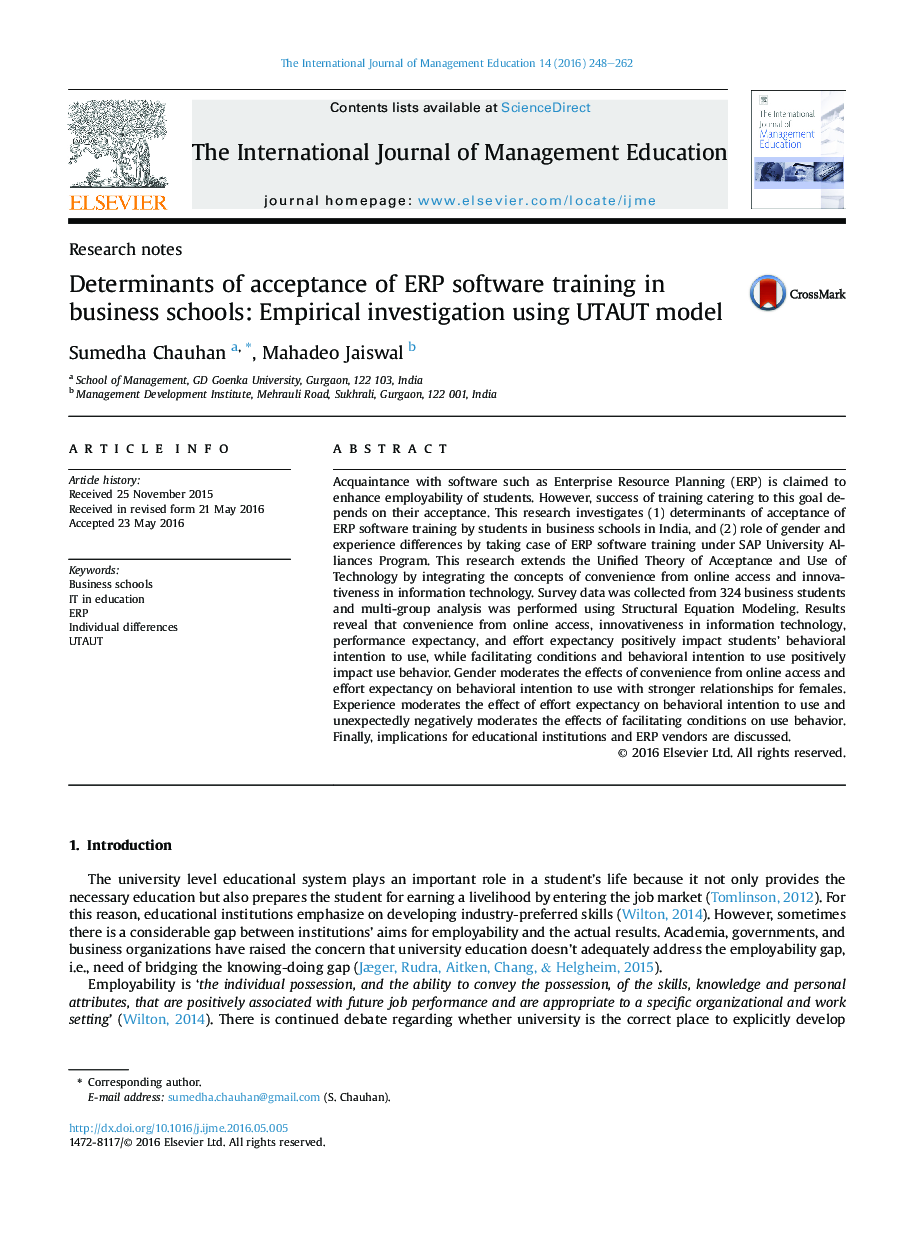| Article ID | Journal | Published Year | Pages | File Type |
|---|---|---|---|---|
| 357303 | The International Journal of Management Education | 2016 | 15 Pages |
•Finds factors for ERP training program acceptance among business students.•Integrates innovativeness in IT and convenience from online access in UTAUT model.•Except social influence, all proposed variables impact behavioral intention.•Behavioral intention and facilitating conditions influence use behavior.•Gender and experience moderate some of the relationships.
Acquaintance with software such as Enterprise Resource Planning (ERP) is claimed to enhance employability of students. However, success of training catering to this goal depends on their acceptance. This research investigates (1) determinants of acceptance of ERP software training by students in business schools in India, and (2) role of gender and experience differences by taking case of ERP software training under SAP University Alliances Program. This research extends the Unified Theory of Acceptance and Use of Technology by integrating the concepts of convenience from online access and innovativeness in information technology. Survey data was collected from 324 business students and multi-group analysis was performed using Structural Equation Modeling. Results reveal that convenience from online access, innovativeness in information technology, performance expectancy, and effort expectancy positively impact students’ behavioral intention to use, while facilitating conditions and behavioral intention to use positively impact use behavior. Gender moderates the effects of convenience from online access and effort expectancy on behavioral intention to use with stronger relationships for females. Experience moderates the effect of effort expectancy on behavioral intention to use and unexpectedly negatively moderates the effects of facilitating conditions on use behavior. Finally, implications for educational institutions and ERP vendors are discussed.
